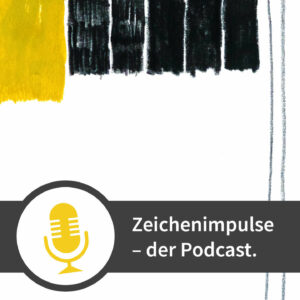Einladung zu Vortrag und Diskussion
Was bedeutet Antipropaganda aus der Sicht der Kritischen Theorie?
 Freitag, 3. Juli 2015, 18.30h – 20.00h
Freitag, 3. Juli 2015, 18.30h – 20.00h
Quartier Leech, Leechgasse 24, 8010 Graz
von Univ.-Prof. Dr. Gintautas Mažeikis, Philosoph. Vytautas Magnus Universität, Kaunas, Litauen
Das Thema der Antipropaganda wurde im Zusammenhang mit dem Krieg in der Ukraine relevant. Eine mögliche Ausweitung des Krieges, die drohende Zerfall von Russland und der EU, die Konflikte um Energie, Finanzen und Information haben in dieser Beziehung die bewusste und unbewusste Propaganda, die Desinformation und Manipulation anwachsen lassen.
Der Philosoph und Künstler Gintautas Mažeikis unterscheidet Anti-Propaganda von beidem: Propaganda und Gegenpropaganda, welche die symmetrischen Bilder des jeweiligen anderen sind. Antipropaganda ist eine komplexe Aktion, um alle unerwünschten bewussten Manipulationen oder Sozialtechniken zu kontrollieren oder zu unterdrücken.
Aber obwohl Antipropaganda kein Spiegel der Propaganda ist, ist sie dennoch eine Erklärung der demokratischen Ideale einer offenen und diversen Gesellschaft. Zeitgenössische Antipropaganda ist nicht nur eine Kontrolle sondern auch eine vielfältige Kunstform und das Wachstum von Selbstverwaltung und kritischem Denken.
Die zeitgenössische Kunst liefert etliche Beispiele der Befreiung und Überwindung von historischen und ideologischen Berührungsängsten sowie die Enthüllung von liberalen, sozialen und politischen Prozessen. Internationaler Situationismus und Kritische Theorie sind die theoretischen und praktischen Beispiele für Kritizismus und das Überwinden von Propaganda. In diesem Vortrag werden nicht nur die klassischen Beispiele Kritischer Theorie von Walter Benjamin, Theodor Adorno und Jürgen Habermas vorgetragen, sondern eine große Vielfalt von aktuellen Forschungsbeispielen auf diesem Gebiet vorgestellt.
Der öffentliche Vortrag (in englischer Sprache) findet im Rahmen des internationalen Symposiums „Sold Out – Antipropaganda Labor“ – im Kontext des EU-Kulturprojektes „REALISE and RESIST“ im Quartier Leech statt. Dieses Projekt wurde bei der Biennale in Venedig 2015 vorgestellt.
Im Anschluss gibt es eine Diskussion mit dem Publikum und den teilnehmenden KünstlerInnen:
Sarah Bildstein (Graz-Vienna/Austria), Silvia Maria Grossmann (Vienna-Zurich/Austria), MOTHERS OF MOLOCH (Vienna/Austria), Martin Pichler (Graz/Austria), Roanna Rahman (Delhi/India), Davide Skerlj (Triest/Italy), Issa Touma (Aleppo/Syria, derzeit Graz), Josip Zanki (Zagreb/Croatia)
ERFRISCHENDES UND SNACKS
Veranstalter: next-Verein für zeitgenössische Kunst www.nextkunst.at
Leitung: Luise Kloos, Tel. 0699 114 60 941, luisekloos1@gmail.com
Supported by EU-Kulturförderprogramm„Creative Europe“, Land Steiermark Kultur, Stadt Graz Kultur, Weingut Wohlmuth
What does mean Antipropaganda from the point of view of the Critical Theory?
INVITATION: Lecture and Discussion
3rd of July 2015, 18.30h – 20.00h
Quartier Leech, Leechgasse 24, 8010 Graz
Prof.Dr. Gintautas Mažeikis, Philosopher. Vytautas Magnus University, Kaunas, Lithuania
Antipropaganda became relevant in connection with the war in Ukraine, a possible extension of the war, the threat of disintegration of Russia and EU, energy, financial and informational conflicts, and in this regard the growth of the conscious, unconscious propaganda, disinformation and manipulation
I distinguish anti-propaganda from both: propaganda and counter-propaganda, which are symmetric images of each other. Antipropaganda is complex of actions to control or suppress all forms of unwanted consciousness manipulation or social engineering.
But although antipropaganda isn’t a mirror of the propaganda, however, it is based on the recognition of the democratic ideals of open society and diverse society. Contemporary antipropaganda is not only control, but also the multiplicity of art forms, the growth of self-government, and critical thinking. Contemporary art presents various examples of the liberation of personality, overcoming historical and ideological reticence, disclosure of liberal social and political forms, processes, events.
International situationism and Critical theory were and are theoretical and practical examples of criticism and overcoming of propaganda. The paper will consider not only classical Critical theory related to W. Benjamin, T. Adorno or J. Habermas, but in largest sense including variety of related critical researches.
Participating artists:
Sarah Bildstein (Graz-Vienna/Austria), Silvia Maria Grossmann (Vienna-Zurich/Austria), MOTHERS OF MOLOCH (Vienna/Austria), Martin Pichler (Graz/Austria), Roanna Rahman (Delhi/India), Davide Skerlj (Triest/Italy), Issa Touma (Aleppo/Syria, derzeit Graz), Josip Zanki (Zagreb/Croatia)
